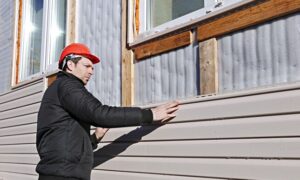One white we all suffer from is limescale the pesky hard water squatter. Mineral deposits are the stuff that’s left behind when water evaporates and so they do a number on everything from your appliances to how good your fixtures look. Learning the best ways to handle limescale and prevent its recurrence can save you much hassle, as well as keep your home looking in tip-top shape.
What is Limescale?
Limescale, also called calcium carbonate, is the white chalky residue left behind when hard water high in calcium and magnesium evaporates away but leaves those minerals. It accumulates on many household surfaces and appliances, especially those where water is heated. The outcome is a coating of limescale that can affect your household items both in terms of their performance, and on the outside.
Is Limescale Harmful?
Although limescale is in many ways harmless to your health, this otherwise has definite disadvantages. It will hurt your appliances performance and how long they last. On top of that, it looks dirty and old because the limescale emanating! It will stain your sinks and faucets, make you to lose out on some of the softness it can provide when washing dishes or doing your laundry by hand, even affect how healthy skin looks under harder waters.
What are the Problems Limescale Can Cause?
Stains: One of a limescale build-ups most revealing problems, are the white streaky marks they leave all over your faucets. Everything from white spots on faucets to grimy rings in toilets, these streaks can be tricky.
Household Appliances: Most vulnerable to limescale build up are water using appliances. All this will make your dishwasher, washing machine and kettle less efficient over time as limescale builds up. This accompanied with regular maintenance results in frequent trips to repair air conditioning or the potential for early replacement.
Problems With Water Pressure: Limescale can block your pipes and slow down the flow of water. This will inhibit your water flow, and could be why appliances are filling up slower.
Skin and Hair Troubles: High mineral content of hard water can cause skin rash, dry hair. Not only can the leftover minerals in hard water block your pores, causing dryness and irritation of the skin but also make your hair appear dull and lifeless.
Removing Limescale
As long as one does it correctly, removing hard water stains does not have to be a challenge. While white vinegar or lemon juice can work wonders on a lot of surfaces, some need the real stuff. Directly use these to the contaminated locations and also leave it for at some point before rubbing away all the deposits.
Faucets Wet a towel in vinegar, wrap the faucet with it using a rubber band. Leave for 1-hour and then remove cloth, limescale should be soft now so scrub away. For harder deposits, you can use a lemon half directly on the faucet.
To tackle the limescale buildup on tiles or plugholes, pour vinegar/lemon juice directly onto it. For bigger areas, a spray of 1 part vinegar to 4 parts water can be sprayed followed by cleaning off after an hour.
In The Toilets, in toilet seats Just put the vinegar juice mix you make before and let it wait for 1 hour. It might be necessary to let such stain removal measures sit over night for tougher stains. By mixing vinegar with baking success, you will get a powerful clean.
Showerheads – Place the showerhead in a mixture of vinegar or lemon juice and water. An extra cheap and simple way is to use a plastic bag, the ba full of vinegar can remain in contact with showerhead many hours.
Preventing Limescale Build-Up
Indeed, for the most part it is harder to remove limescale than keep its development. Your home can also make a big impact if you keep it updated and the right additions in place.
For the most part, something as simple installing a water softener (like those Pureflowz provides) can reduce how hard your water is so it does not create limescale in the first place. This will ensure that your appliances are in top working order whilst keeping your perpetually spotless fixtures.
Faucet Filters — Install a faucet filter to the metal pipe of your sink, it can reduce calcium and magnesium in water. An effective faucet filter can cut down on contaminants in tap water, and thus the wear-and-tear that build up from using hard metal-rich water day to day.
Regular Cleaning : Regular cleaning, since limescale does not settle as easily on smooth surfaces. Add to the above by occasionally giving a cleaning or descaling of faucets, showerheads and other water fixtures.
Conclusion
The thing about limescale is that you need to use two types of procedures with these solutions: the removal methods and then those techniques through which do not let such things come again on your faucets. Because it is treatable, you can avoid buildup in the first place with natural cleaning agents and home solutions such as water softeners or faucet filters. All in all, you can keep your house clean and conducive to proper health with a little maintenance and good decision making.



































